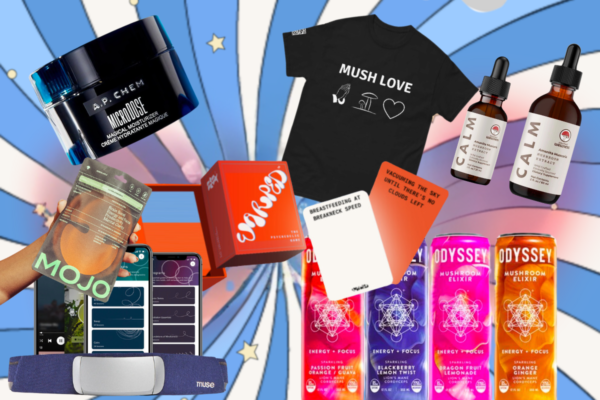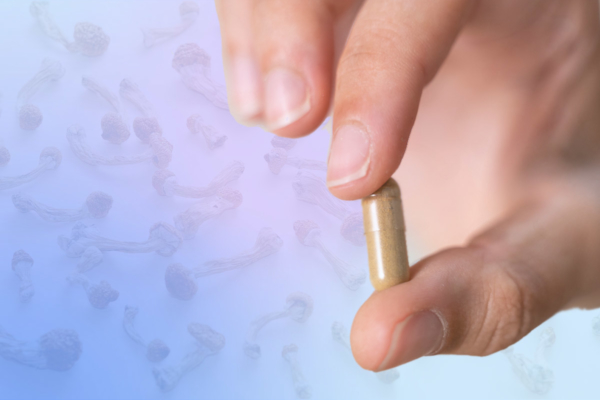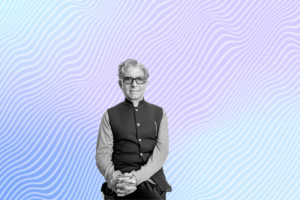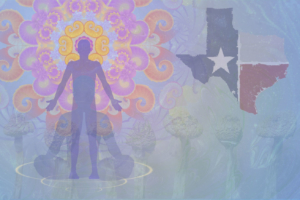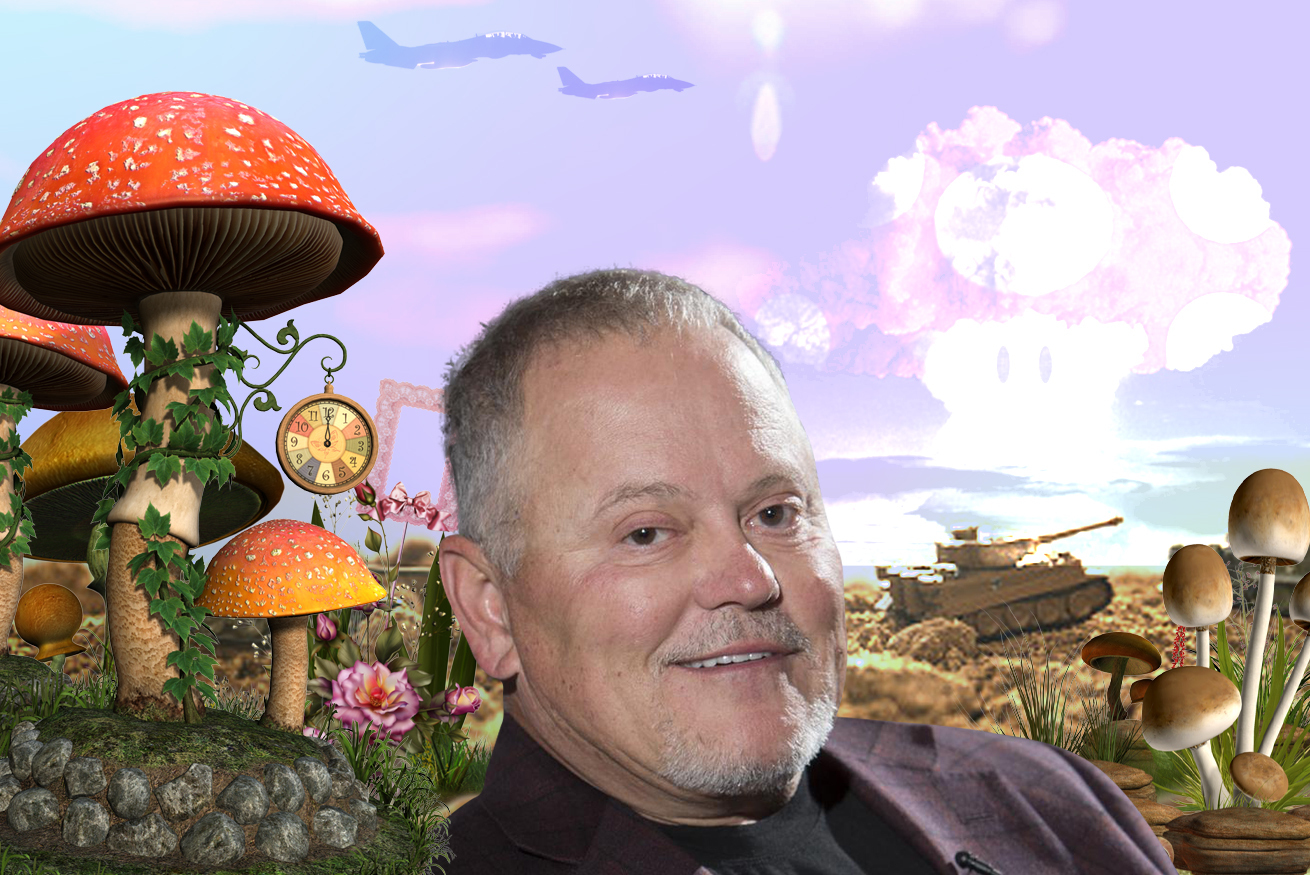
Bob Parsons is a wildly successful businessman, entrepreneur, self-made billionaire and founder of GoDaddy. What few people know about Bob, however, is that he is also a Vietnam War veteran. His time in the military — for better or worse— ended up shaping a good majority of his adulthood. While the military taught Bob discipline, he returned to the USA with PTSD, which was left untreated for decades.
For this interview, Bob Parsons sat down with David Flores, CEO of Psychedelic Spotlight. The two discussed Bob’s time in the war, his PTSD, and how after decades of suffering, he was finally able to treat it using psychedelic medicines.
Today, Bob, helps fund much of the psychedelic research that is currently underway across North America.
***This transcript has been lightly edited for clarity and length. This is the first half of the interview. To watch the full interview, click here.
David: I know a lot of folks out there are certainly very very familiar with Bob Parsons, the wildly successful businessman, entrepreneur, self-made billionaire and of course founder of GoDaddy. But the side that they may not know about you is the time that you spent in Vietnam and how that experience would end up— for better or worse— shaping a good majority of your adulthood and leading you to where you are today. So if you wouldn’t mind, sir, maybe starting with that, talking about your experience in Vietnam. Some of what you experienced, saw, and how that would impact the person that you became.
Bob: Well, there’s positives and negatives there David. To give you a little bit of background, I enlisted when I was 17. I was not a great student in school. I expected that my grades wouldn’t be sufficient enough to graduate.
And I had a couple buddies come up to me after gym one day, I think it was in March, and they said, “We’re gonna go down and talk to the Marine Corps recruiter on Conklin Street, if you got any interest in going.” And I said, “count me in!” So I came back, and I was 17 then, so my mother had to sign the papers. When I got my orders, I showed them to all my teachers and they all passed me.
Okay. Now, let me put the war in perspective okay? During the war in Afghanistan, in a typical week the casualties on both sides —killed and wounded— ran about 150 a week. In Vietnam, when I enlisted, that was about 33,000 a week. So, I mean, this was a righteous war. And if you look at the Marine Corps casualties over there, the Marine Corps took more casualties in the Vietnam War than it did in World War I and II combined.
So I mean, brother, this was a righteous war. I mean it was rocking and rolling. When I got there, I was 18 and a couple months, and one of the youngest guys in the platoon, if not the youngest. I found out that the new squad leader —that was a senior man— had been there for six weeks. Everybody else left. They were either killed or wounded.
During the first night, one of our brothers was hurt horrifically. During the next night, our point man hit a trap and blew his legs to shreds. I had to, I helped carry him back about a mile, a mile and a half to the medevac point. And, I mean, that’s the way it went.
I lasted one month —30 days, 31 days maybe. I was walking on a point team and going through a village at night, and hit a tripwire. It was attached to a North Vietnamese hand grenade. And I caught shrapnel, both legs, left elbow, and was medevaced to Japan. In the Army, Navy and Air Force if you were wounded, I think you could opt out of combat, but in the Marine Corps, it’s three times, of course.
I received orders back to the bush, and through a series of events, I was reassigned to military intelligence. Anyhow, eventually I rotated home. I was back in Vietnam many, many times, never in combat.
The rocket attacks coming in and that sort of thing with the sirens. I mean, I felt what it was like to run down a tarmac so fast that I’m pretty sure my feet never touched the ground.
Now, when I came back, I worked as a laborer in a steel mill for about a year, and then I went to the University of Baltimore. I majored in accounting and um, believe it or not —because nobody back then believed it— I graduated magna cum laude. I was able to start a few businesses, I’ve started three now that debuted on the Inc 5000 list low.
And I wouldn’t have done any of this without the Marine Corps. The Marine Corps turned me around buddy, I mean, they taught me everything. They taught me discipline, responsibility, all that. I owe them everything I’ve ever accomplished.
Now, that’s on the good side, right?
On the negative side, I came home with a case of PTSD to beat the band. Now, back then, nobody even talked about PTSD. The guys in World War II and Korea called it shell shock, and that was the most extreme cases of it. So I never knew that I had it. And I thought, “Well, hey! I was only in combat for a month!”
And then, as time went on, I became aware I had a pretty righteous case of it. The Bob Parsons that came home was very different from the one that went over. The guy that went over liked being around people. Nothing much bothered him. Pretty gregarious, liked going places. Just easy going, happy as a lark.
The guy that came back? Not so much.
He was quick tempered, didn’t like being around people. I didn’t want to go to any events and I always wanted to be by myself. Depressed. All the typical symptoms of PTSD.
Now, my PTSD most certainly cost me two marriages. The crazy part is, probably one of the reasons why I was so successful, is because I buried myself in my work, which was how I was able to kind of go on.
But, now I’m now married to my third and final wife, who is the love of my life. And in discussing with her, I got this Michael Pollan book, How to Change your Mind. Oh man, what a game changer! What a good job Michael did! So, I read that, and then I talked to my wife and I said to her, “I’ve never done anything like this. I’d like to try it.”
And so she had me hooked up with two people that kind of treat vets under the radar within two weeks.
So I got together with them in Hawaii, and over four days, I did guided therapy using psychedelics. Now, the important thing to notice, when you’re being treated for anything like this with psychedelics, is psychedelics play an important role in it. It’d be very difficult to do it without them. Matter of fact, it takes forever to do it without them. But with them, with the right guided therapy, I mean, it is the cure.
So during the first day I took ayahuasca and uh
David: Whoa you jumped right into ayahuasca? Not even setting yourself up through microdosing mushrooms or anything? It was just, bam, right into ayahuasca?
Bob: At that time, I didn’t know what ayahuasca was. They told me South American vine is what it’s made from.
And I said, “Well how’d they ever figure that out?” And they said, “Well, the Natives down there told them that the trees told them how to do.” I kind of believe it, all right?
Now, the next day I took mushrooms. The guy made this tea with mushrooms, and I don’t know what kind to this day, but he said to me, “You’re probably only going to need one cup because I made it strong.” Well, I drank the first cup. Matter of fact, I drank all three cups and ate the tea bags. So anyhow, that was quite an experience.
The third day I took off, and went and played nine holes of golf with Renee, my wife. And I remember, I mean, it felt like the trees and the bushes knew I was there. I never putted so good in all my life! It was like the green was saying, “Hit it here Bobby!” And, I mean, I made every putt! I’ve never putted like that since!
And, the third day, it was good old-fashioned LSD.
After it was done, and I went back to work in Arizona, the people that I work with, they couldn’t believe the change in me. I mean, I never told them what I did. They go, “What happened to him? He’s so nice, he listens! Nothing bothers him. He says such nice things now!”
Because I was like I was before the war, right? Even my son told his wife, he goes, “Man, Dad is so different! Man, he’s calling more now and he’s just so nice and happy!” And he says, “I’m worried that he found out he’s gonna die soon!”
So anyhow, I was like I was before the war. I wanted to go places again, wanted to be around people. Here’s the deal. It had been 49 years since the war, and thanks to psychedelics and the counseling with them, I finally came home, David.
David: That’s beautiful. You know, finding your way back home took a while, but you made it there. You say psychedelics, through counseling —and we also use the term psychedelic assisted therapy. I want to shed some light on that, because I think that’s important. Especially for folks that are somewhat skeptical over psychedelics, how important is the element of therapy, of counseling? Because the way I’ve always looked at it, Bob, is psychedelics alone are not the silver bullet.
Bob: Well, that is 100% true. And the other thing is, when you’re going through your guided therapy with psychedelics, people sometimes say, “Well man, it was a lot of fun, at least you’re using psychedelics!”
Uh-uh. No, because see, you’re dealing with all the stuff that caused the PTSD, right? Or, whatever it is. The anxiety, whatever the individual’s dealing with. And it’s hard. It’s hard. And sometimes you feel like afterwards, “Man I don’t want to do that again.” But, you gotta do it, you got to go through it, because that’s what causes the healing, right? Now, what the psychedelics do is they make you willing to listen, willing to bring it up and then open to dealing with it.
So, the psychedelics and the therapy, it’s like a car? What’s more important, the engine or the gasoline? Obviously it’s both of them!
——————————————————————————————————————————————————-
If you enjoyed this, consider watching the full interview! If you prefer to read, the second half of the transcript is set to be released next week.
